Source: www.independentpersian.com
Translation by Iran Press Watch
By Amir Soltanzadeh Writer and Journalist
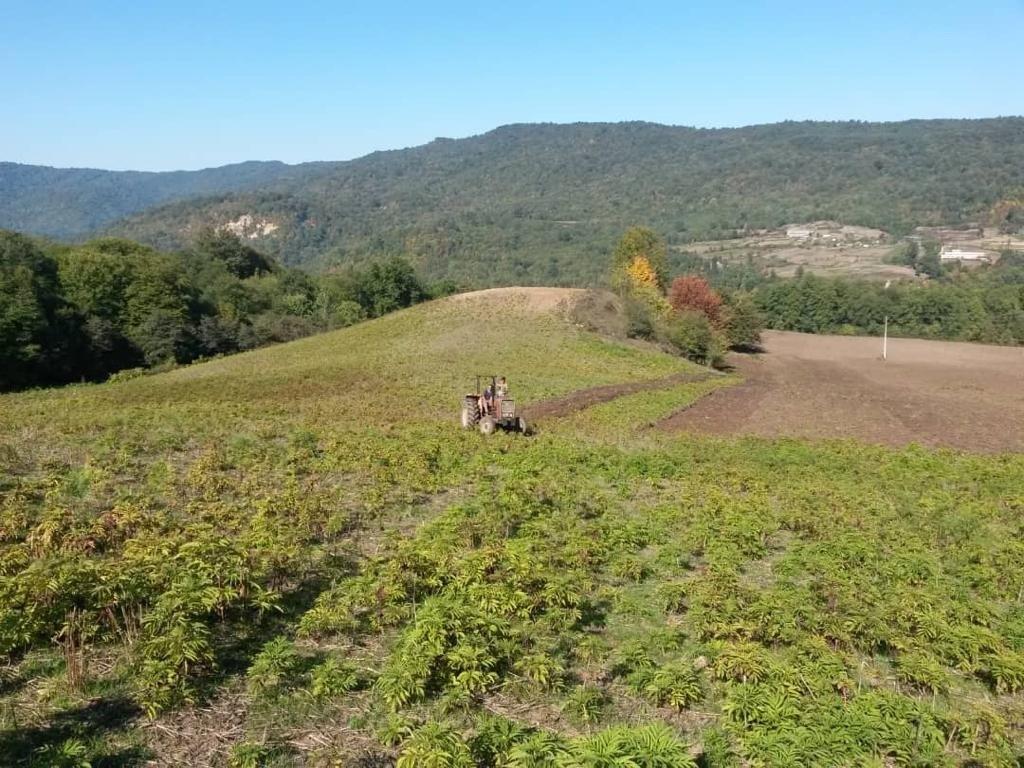
Seizure of land with Title Deeds in Roshankooh village under excuse of Protecting Natural Resources
Recently, the Natural Resources Department of Mazandaran Province confiscated land owned by mostly Baha’i residents of Roshankooh village, near the city of Sari, under the pretense of protecting natural resources. These lands, which have been owned by the villagers for nearly a hundred years and have title deeds, have been occupied by a Special Security Forces Unit.
On October 25th of this year, the head of Forestry of the region, the head of the Sari Protection of Natural Resources Unit, and more than 15 members of the Special Security Forces Unit and the police force, demolished the existing fences and erected a new one without prior notice or subpoena.
These farmlands, on which villagers lived, have belonged to them for more than a century. Also, the landowners have deeds showing the ownership of the land since the time of the Land Reform Law enacted in 1963. On top of that, there are other ownership documents that have been issued during the time of the Islamic Republic.
Roshankooh village has about 160 families, most of whom are Baha’is. These people have owned and worked on their farmlands around the village for several generations.
Previously, several courts were held on this matter on February 7, 10, 12, and 17, 2016, with a complaint from the Department of Natural Resources in Branch 1 of the General Court of Kiya-Sar city.
HRANA writes: “The Baha’is of Roshankooh village petitioned that a look at the map and aerial images will show that not only have they not encroached on natural resources, but that tens of thousands of square meters of their farmland has been occupied by the Department of Natural Resources in recent decades. According to this report, based on the Recognition Advertisement No. 8752-31 / 2/54, Roshankooh village is one of the exemptions from being part of the natural resources. However, the Department of Natural Resources avoids providing a map that is appended to that advertisement.”
Attempts to confiscate Baha’i land in Mazandaran is not new. In 2010, 50 Baha’i homes in the village of Evel, near Roshankooh, were destroyed by security forces, and residents were forced to flee. The owners believe that the Natural Resources Protection Organization did this at the instigation of the IRGC’s intelligence service.
The order issued to confiscate the lands of the village of Evil explicitly states that because the villagers are Baha’is, their ownership of land and homes are illegitimate, and the owners must be evicted. In this sentence, it is claimed that since Baha’i landowners were living abroad and trying to overthrow the government, their land in the village of Evil were confiscated and their houses were destroyed by the edict of the clerics.
Baha’is in the villagers of Roshankooh intend to appeal the decision, since there is no explicit law on seizing and expropriating the property of non-Muslim landowners.
Pressure on followers of the Baha’i Faith and permission to seize their property has been supported by Supreme Leaders and religious institutions. It has been prevalent since the beginning of the 1978 Revolution. Much of Baha’is’ property has been confiscated by the Foundation of the Oppressed or by executive order of the Imam Foundation.
Regarding this, Ayatollah Makarem Shirazi, a top cleric, in response to a question about the confiscation of Baha’i property in the first volume of his book of questions and answers, published in 2011 by Imam Ali ibn Abi Talib Publishing House, has explicitly stated: “There is nothing wrong with confiscating their property so long as they are active.”
Ayatollah Behjat, in his book of questions and answers, also does not forbid the seizure of the property of Baha’is, and states in this regard: “A Baha’i cannot become an owner.”
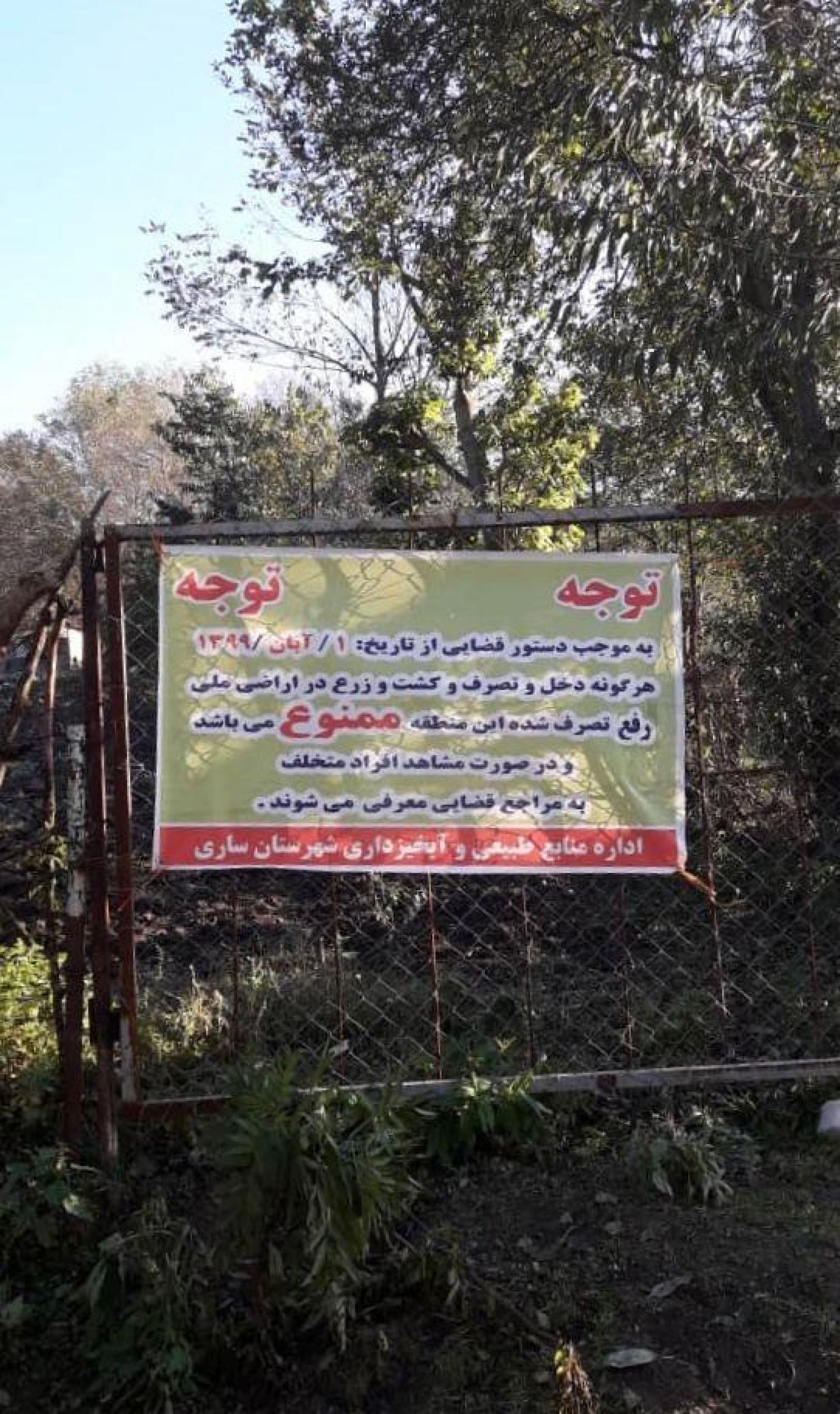

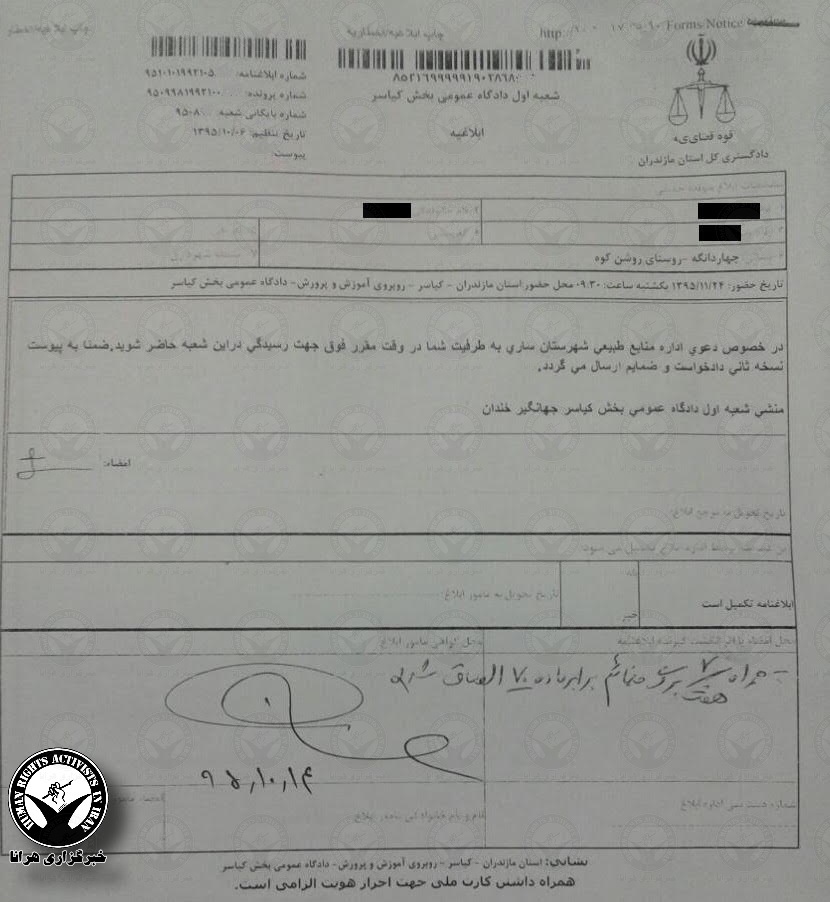
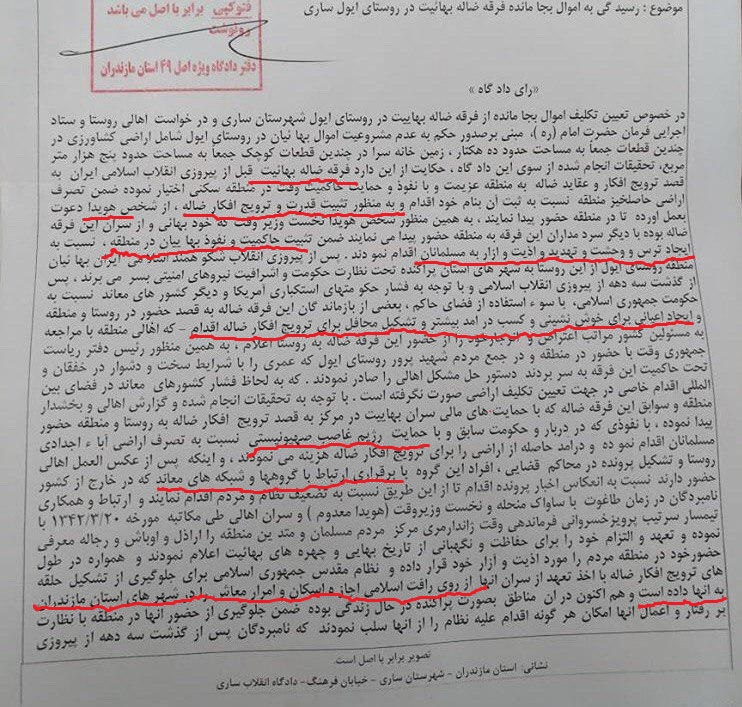
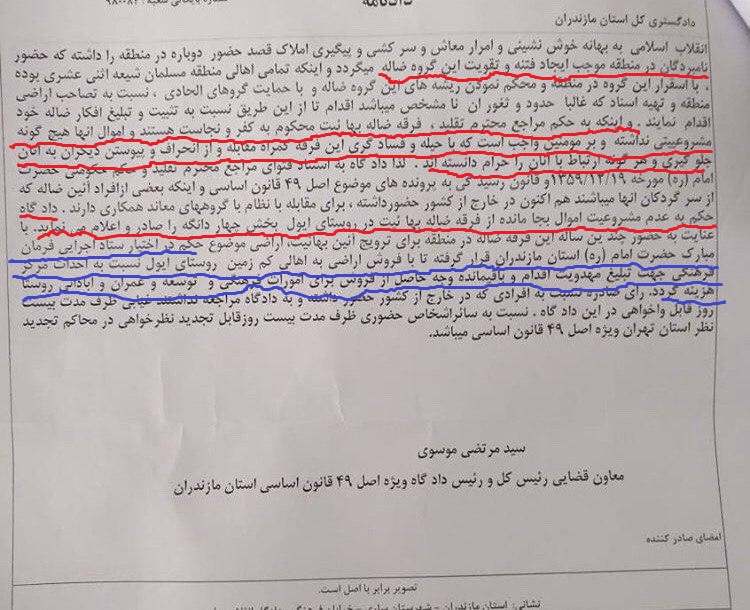
November 9, 2020 12:22 pm
Who could think this theft of property is a good thing? Deeds like this are clearly wrong, and yet what force makes these deeds seem fair to people who have the ability to perceive?